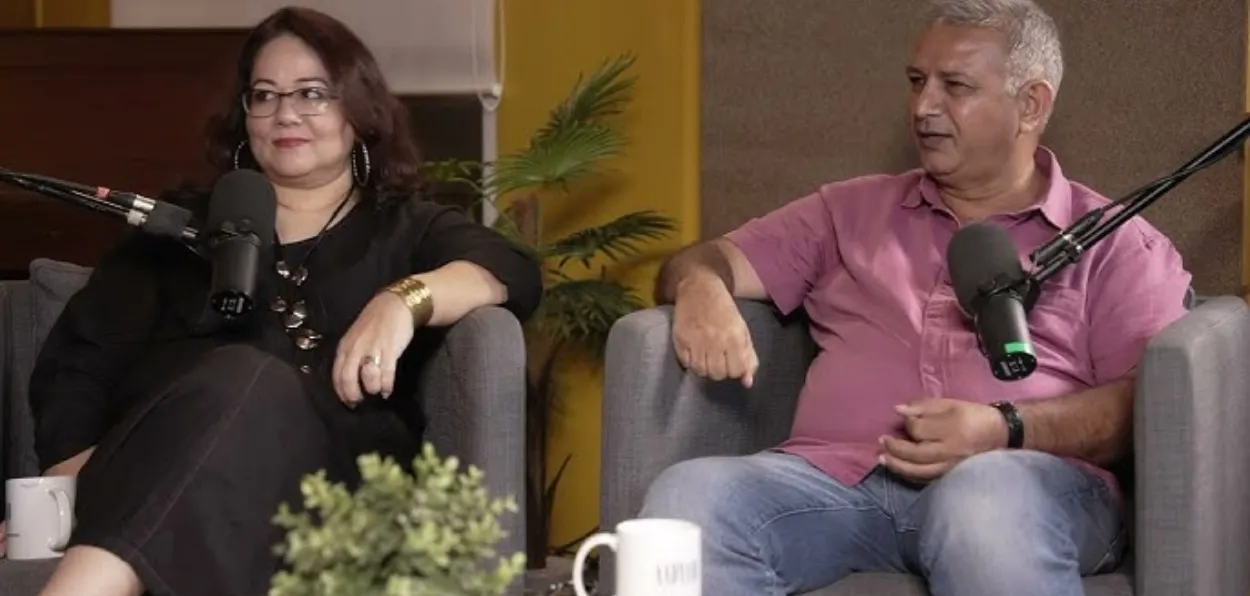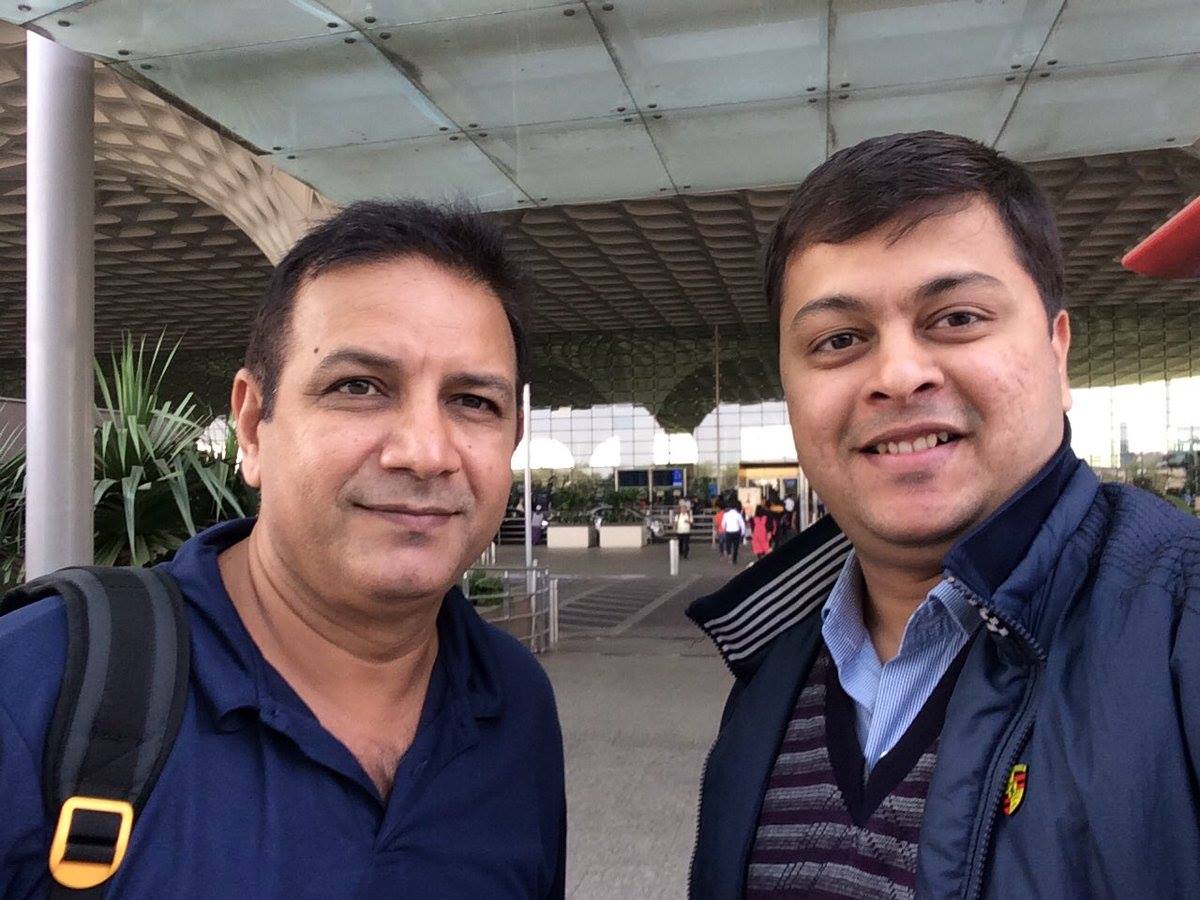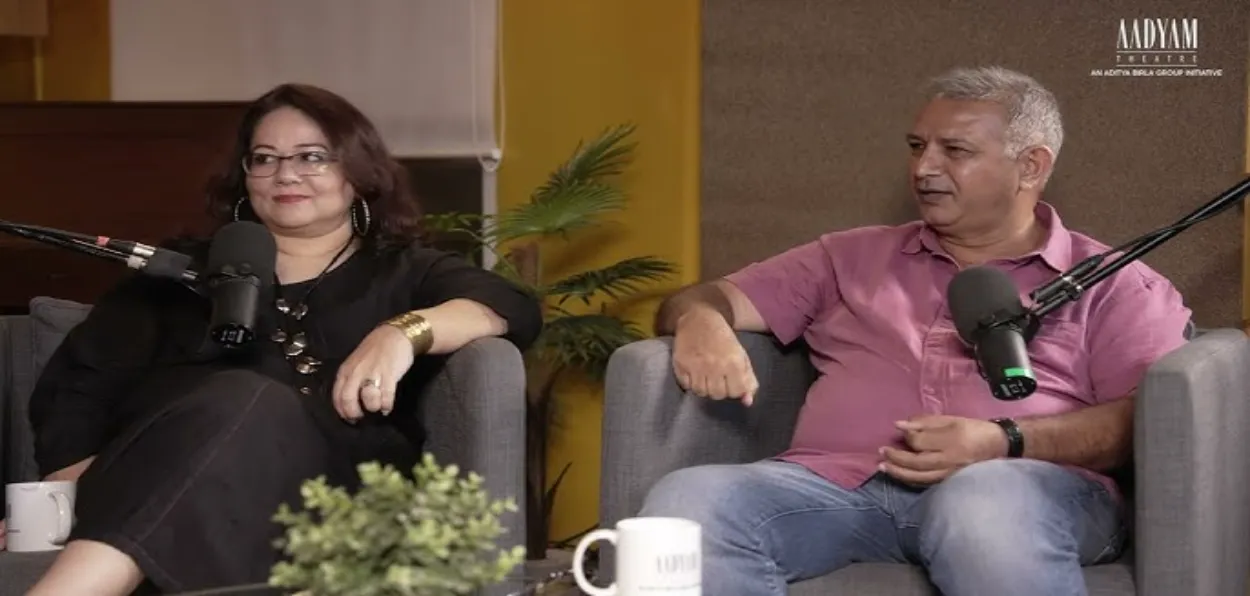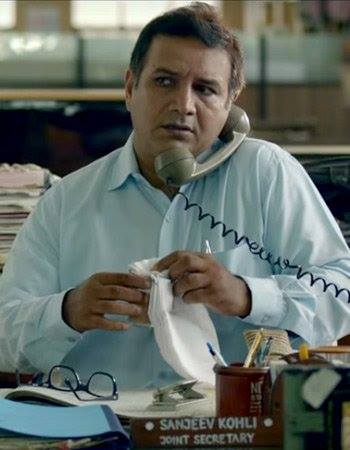
Rana Siddiqui Zaman
From theatre to television and films to OTT ace actor Kumud Mishra has had a smooth glide. He rose from being a firefly to a twinkling star on the creative horizon. From 1995 till date, the 45-year-old actor has popular teleserial like Swabhiman, Shayam Benegal’s Sardari Begum, Imtiaz Ali’s Rockstar, Tiger Zinda Hai, Anubhav Sinha’s Article 15, Mulk, Thappad, IC-184 Kandhar Hijack, TVF Tripling (OTT) and many more up his kitty, establishing him as one of the finest actors today, nominated as the best-supporting actor multiple times.
The Allahabad-born and bred, Mishra studied at National Military School, Belgaum, son of a Fouji C L Mishra and a homemaker mother, Mishra’s excellence at academics and love for theatre ran parallel in his life without overlapping each other.
A denizen bred in bonhomie and a powerful cultural milieu, this National School of Drama Graduate but now, is observing the changing tides at Bollywood, OTT, and society alongside. It worries him as much as it establishes within him that the original fabric of any society is woven with of love and humanity which cannot be torn up wholly.
There are actors and there are thinking actors. The ones like Mishra carry a world of philosophy with them, learned over the creative and syncretic legacies of his father and forefathers. The way he talks classifies him as a wise man, who has chosen to live his life beyond right and wrong.

Kumud Mishra with a family member (Facebook)
A discussion with him about acting, training, religion, life, philosophy, or humanity leads to a quintessential sufi thought that Sahir Ludhiyanvi reveals in his famous song from Hum Dono (1961):
Ghum aur khushi mein farq na mehsoos ho jahan; Main dilko us maqaampelatachalagaya
(I steered my heart to a zenith where, Distress and delight make no difference)
Why does he think like that? It is the changing norms that have led from small-town real goodness to a show-time sham on social media. He trusts society has come to a point where everything we do is not for ourselves our happiness, but social media.
“Today before my worship, I would take a selfie with my God and fold my hands to show the world that I am in reverence of my God. We use God as a business model. With God, now we have a give-and-take relation”, much to quote the celebrated song from the film Daddy (1989) penned beautifully by Suraj Sanin;
Iss badalati hui duniya ka Khuda koi nahi ;Saste daamon mein, harroz Khuda bikte hain
(There is no God in this changing world. He is sold on footpaths, everyday at affordable rates)
The poster of Laddoo featuring Kumud Mishra as a Maulana
“Now reverence to our old and ailing parents is for social media; so are their birthdays, death, and anniversaries. What are we teaching our children? Therefore I am very cautious about how I influence my 10-year-old son, Kabir,” Mishra is pensive.
The actor married a Muslim Ayesha Raza, a theatre artiste and a former publicist. “We met when she was publicizing our play Shakkar ke paanch daane, globally. I saw her in a play of 2.5 hours where she barely had a few lines to deliver. But her presence on the stage was too strong to forget. I was riveted. We met a few more times and realized we were ready to be together for life.”
They didn’t have to say I love you to each other; it was felt and responded in silent understanding. They both had to pursue their parents.
“It took some time. My father, since he was from Fouj, didn’t object. Even my grandparents agreed thinking I wasn’t ready for marriage until someone matched my wavelength. But my paternal uncles could create a drama. So they were not told about the religion of the girl. While our marriage was being solemnized with Hindu customs, I was getting a bit anxious but to my utter surprise, Ayesha performed all customs and duties like she knew it always. Even the pandit ji who was performing the customs said, ‘Village girls should learn to follow traditions from city girls. If only he knew who this city girl was” Kumud bursts into laughter adding, “Religion never came between us. It never will. For both of us, humanity is our first and last religion, the rest are customs we follow.“
 Kumud and Ayesha during an interview
Kumud and Ayesha during an interview
During the Covid period, his short film Laddoo (2019) on communal harmony found millions of viewers and is still counting. Briefly, the film talks about a 9-year-old Hindu boy (played by Kabir Sajid) who is carrying a tiffin box with laddoo-Alloo-puri meals for a temple priest to eat in the name of his deceased Grandfather. He lands in a mosque where he meets the Maulana played by Mishra. The child insists that he eat the food so that this offering reaches his grandfather in heaven. The maulana refuses but the child’s innocent questions – which contain the philosophy of real humanity – dumbfound him and he agrees to take it and they create an instant bond.
Mishra revels at its mention. “Oh yes! I am not happy because so many people saw it but because they saw it in the right spirit. The success of this shows that hatred is always manufactured, love is natural.”
He is observing that some elements are trying to herd people in the same direction. “Lack of education and awareness in the right way is still far away from us. In today’s society, educated orthodox have done more damage to the society than an uneducated man on the street. You will find more wisdom in such a common man, his purview of life would be more extensive than a so-called educated person. Unfortunately, such degree holders, if their arguing power is good, will rationalize the stupidest of things, market, and sell it well! If they want to sell religion like this, let them do it; it works well for them.”
 Kumud Misra in movie Airlift
Kumud Misra in movie Airlift
OTT’s contribution to hidden talents is remarkable. However, it seems like the days of such happiness were limited. “Now this medium has started making films with stars to make it a hit, which is stupid because the very foundation of OTT was on great scripts and actors. Web series like Panchayat and Kala Pani have first-time actors with great scripts. They didn’t need stars to be hit.” this certainly qualms Mishra. However, if stars are trying a new medium to showcase their talent, the performer in him welcomes that too.
OTT has been a liberal platform. But slowly censorship on religious grounds has started emerging. For instance, “A young girl came to me with a marvelous script but she complained that she was demanded by an OTT platform to change the religion of his Muslim protagonist to another religion because he was portrayed as a good man. She was very upset about it. Those who want to express their anger or anguish for religious fundamentalism are doing it in their ways through individual films. It is a dangerous trend”
So, does it mean that good times even on the OTT are over?
Mukund Mishra with his parents and siblings
“People have such scripts but there is a constant fear to release it because commercials are involved in it”
Such trends hit a high and then fall spirally downwards. “It’s a cycle. It would be completed. People, situations, and society will retain its goodness back but after considerable damage,” predicts the seer in him.
If you ask him whether he is hopeful for the good times to return he has this to say, “I am reading a book called ‘All the light we cannot see’ (a 2014 War Novelby American author Anthony Doerr, set during World War II), which makes me feel there will never be a light at the end of the tunnel.”
But he feels a saner society just has to prepare a counter for hatred because “only a fistful of people are hate mongers. Every emotion reaches its saturation. Our job is to contribute our counter to it.”
ALSO READ: Erin Mir: Rising star of tennis from Kashmir on winning spree
Mishra, at an individual level, does it by choosing the work he does, “which could create a discussion, if possible, like talking to a journalist like you, who will write about it. I also try to teach my son that he takes the right values at this age.”
